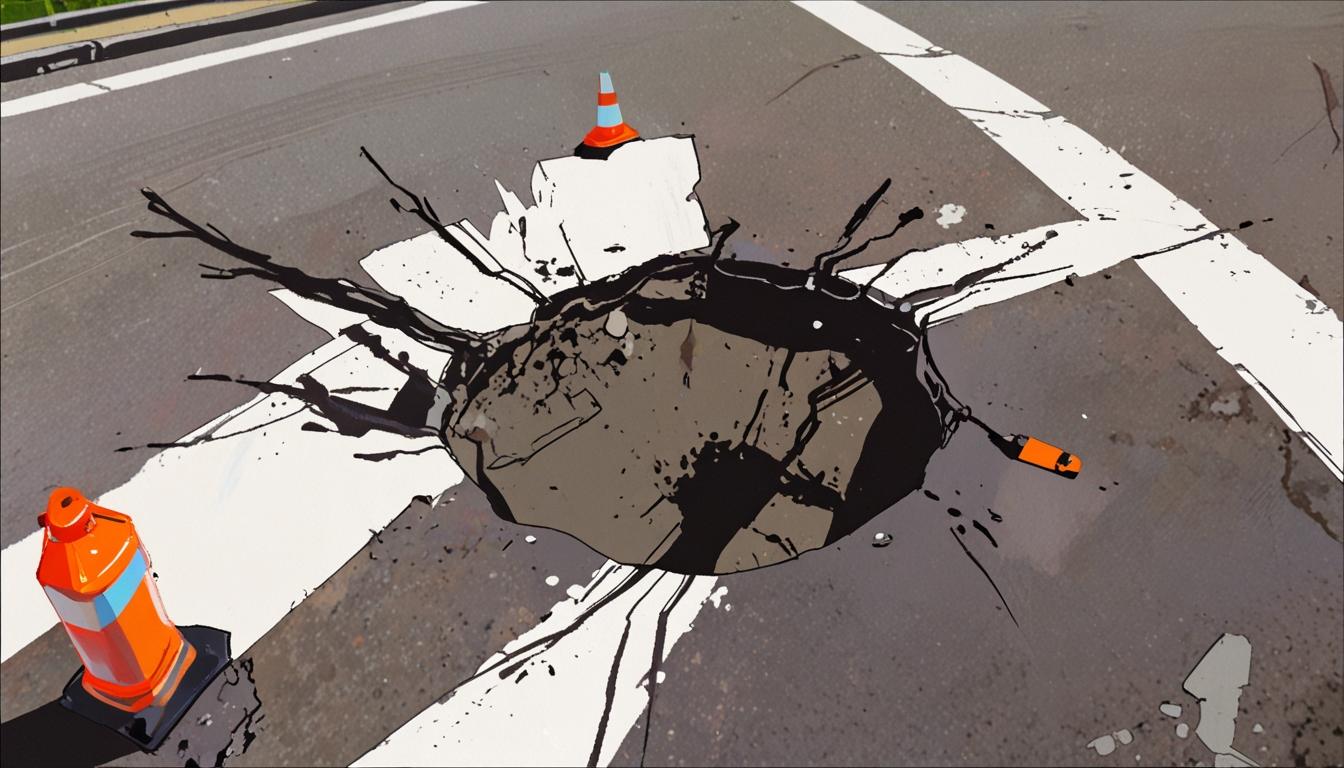The growing prevalence of potholes across the UK has sparked significant debate, particularly following claims from the Chair of Reform UK, Zia Yusuf. He contends that a primary cause of the enduring issue is the prevailing practices of Tier 1 contractors. In a recent social media post, he highlighted that these contractors tend to subcontract repairs based on daily rates, thus lacking incentives for speed or quality. As Yusuf pointed out, while millions of taxpayers’ pounds are allocated for road repairs, many potholes remain inadequately addressed, as councils often revert to outdated methods—like using pickaxes—rather than adopting more advanced technologies, such as the JCB Pothole Pro. He emphasised the urgent need to investigate these practices, suggesting that whistleblowers have already begun to step forward with information about the inefficiencies plaguing the system.
The issue of potholes and the methods used to rectify them is not merely a matter of aesthetics or inconvenience; it directly impacts road safety. The government has taken steps to hold companies accountable for their role in exacerbating the pothole crisis. Recently, it introduced financial penalties for utility companies that leave behind poorly completed roadworks. This initiative, championed by Transport Secretary Grant Shapps, aims to safeguard drivers from unwarranted repair costs while simultaneously improving national road conditions. The push for greater accountability reflects a broader recognition of the infrastructure's deterioration, which has reached critical levels in many areas.
Moreover, the intricacies of the construction industry, particularly concerning fraud and malfeasance, compound the pothole crisis. HM Revenue & Customs have released guidelines aimed at identifying labour fraud within the sector. This type of fraud often involves creating convoluted supply chains that evade taxes or regulations, leaving legitimate subcontractors at a disadvantage. Such practices not only undermine the quality of work but also contribute to the erosion of public trust in infrastructure projects.
In recent years, the troubling trend of fraudulent claims linked to pothole damage has also surfaced. Reports indicate that local authorities faced a dramatic increase in such claims, tripling in frequency during 2022. The rise in extreme weather has exacerbated road defects, inadvertently creating opportunities for opportunistic individuals to fabricate claims of damage. Insurers like Zurich Municipal warn that the cost-of-living crisis may further fuel this trend, as more people seek to exploit system weaknesses for financial gain.
The construction industry's challenges extend beyond simple negligence to encompass serious corruption as well. Recent convictions in a bribery case tied to the demolition industry underscore the need for vigilance and reform. Four individuals were found guilty of corrupt practices that resulted in over £600,000 in bribes exchanged for advantageous contracts. This incident not only highlights a concerning breach of ethics but also illustrates how corruption can distort competition within the sector, ultimately affecting the quality and safety of public works.
As Zia Yusuf and the Reform UK party aim to launch their initiative to address these issues, the call for comprehensive reform resonates within a broader context of societal impatience for accountability. With 10 councils now under Reform’s control, there exists a tangible opportunity to influence policies that could fundamentally reshape the landscape of public infrastructure. The challenges of potholes, fraud, and inefficiency demand urgent attention, and the solutions must be imbued with transparency and integrity.
In summation, while the concerns around potholes are immediate, they highlight systemic issues within the construction and public works sectors that require not just quick fixes but a holistic approach to reforming practices and enhancing accountability across the board.
Reference Map
- Paragraph 1: [1]
- Paragraph 2: [2]
- Paragraph 3: [3]
- Paragraph 4: [4]
- Paragraph 5: [5]
- Paragraph 6: [6]
- Paragraph 7: [1]
Source: Noah Wire Services
